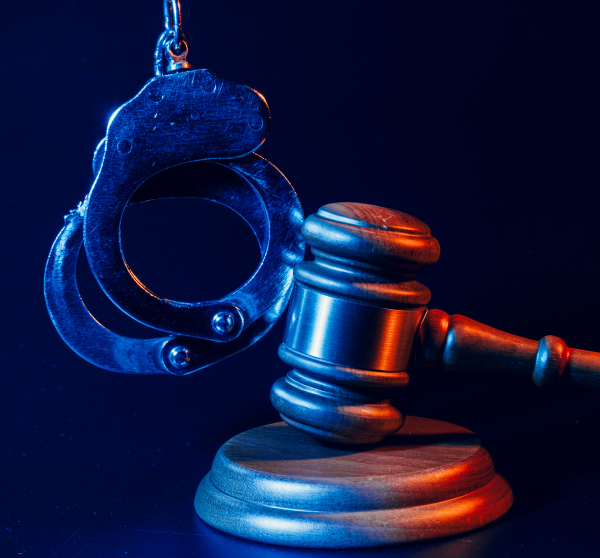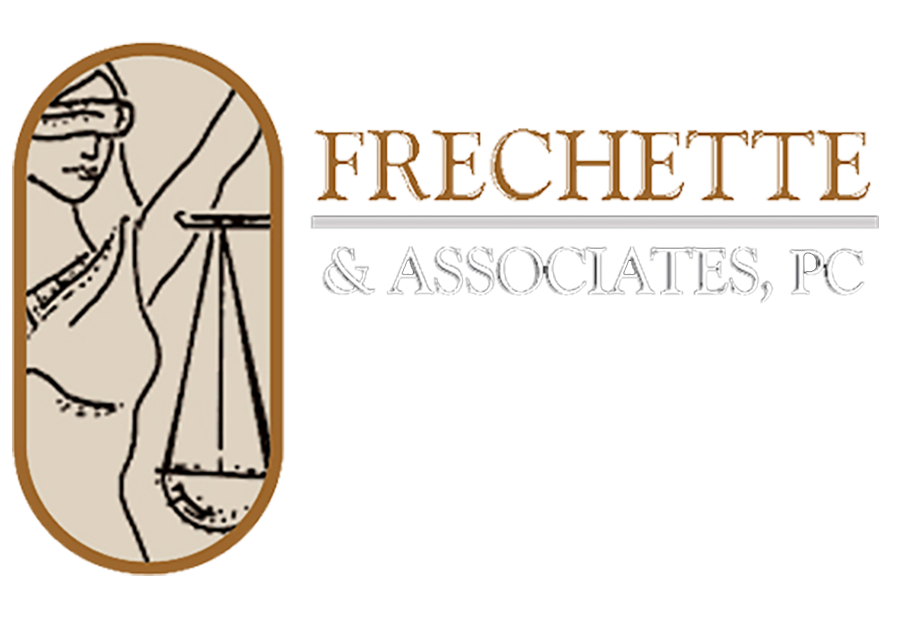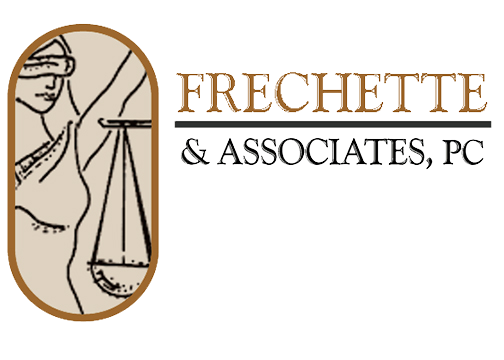
If you’ve been arrested for DWI, you need experienced legal representation. Frechette & Associates is a leading law firm in Albuquerque and across New Mexico with many years of experience defending those accused of DWI. We know the ins and outs of the law and will work tirelessly to get you the best possible outcome in your case.
What Is A DWI?
DWI stands for “driving while intoxicated”, otherwise known in New Mexico as “Driving While Under the Influence of Intoxicating Liquor or Drug”. If you are convicted of DWI, there are a number of penalties that will follow. Frechette & Associates is experienced in handling DWI cases and can help you fight the charges against you. DUI is an alternative term used to refer to DWI, there is no alternative or separate DUI crime in New Mexico.

A DWI is a serious offense that has long term consequences. If you are charged with driving under the influence of alcohol or drugs, you will be subject to penalties. You will be exposed to jail time and fines, and there is required probation which includes and the revocation of your driver’s license, educational and counseling programs, and community service. With all DWI convictions you are required to install an ignition interlock device on your vehicle during probation. An ignition interlock device is a breathalyzer that prevents your car from starting if it detects alcohol on your breath.
A refusal to give a breath sample will cause an additional minimum mandatory jail sentence if that element of the DWI is proven. The prosecutor can argue at trial that the refusal to test is “evidence of a guilty mind”, since an innocent person would take the test to prove their innocence.
A First Offense, Aggravated DWI conviction will include a minimum of 2 days jail time. Repeat offenders, if convicted, face harsher penalties than a first time DWI charge.
MVD REVOCATION OF THE DRIVER’S LICENSE
Even if you are not convicted of DWI you are exposed to a revocation of your driver’s license due to administrative revocation of the license in a separate MVD process. This separate hearing will occur within 90 days of the date of the incident, if a hearing is requested within 10 days. The length of the potential revocation will be either 6 months or 1 year, depending on the number of times you have been administratively revoked in the past. You may drive if you have an interlock license and interlock in any car you drive. The reinstatement rules after the revocation are over are the same as a conviction revocation.
As a result of multiple DWI convictions, the penalties become more severe. From 2nd offense and up there is a requirement for mandatory specialty court, in-patient or outpatient treatment programs. These programs vary, depending on the jurisdiction, various qualifying factors to enter a treatment program and the number of DWI convictions.
Upon repeat conviction the driver’s license will be revoked and you will be required to have an ignition interlock device on any vehicle which you drive. An ignition interlock device is a breathalyzer that is attached to a vehicle’s ignition system. In Albuquerque and across New Mexico, when you have a revoked license, your driving privilege is taken away and after a specified period of time you must reinstate to regain your driving privilege.


What Occurs with a Second DWI Conviction?
A second offense conviction will result in a minimum mandatory 4 days jail up to 364 days, a minimum $500 fine up to $1000, from 2 to 5 years probation and outpatient or inpatient counseling programs. After a second DWI offense, the driver’s license will be revoked for up to two years in Albuquerque or anywhere in New Mexico. Until a minimum period of clean interlock use with an interlock license, there is no reinstatement of the license.
What Occurs with a Third DWI Conviction?
A third offense conviction will result in a minimum mandatory 30 days jail up to 364 days, a minimum $750 fine up to $1000, from 3 to 5 years probation and outpatient or inpatient counseling programs. After a third DWI offense, the driver’s license will be revoked for up to three years in Albuquerque or anywhere in New Mexico. Until a minimum period of clean interlock use with an interlock license, there is no reinstatement of the license.
After a third DWI offense, the license suspension or revocation might be for up to 3 years, with the same caveat. This would only allow the driver to operate a motor vehicle that has an ignition interlock device installed. This ensures that an impaired driver is physically unable to start the engine and drive the car of any vehicle they are going to operate.
What Occurs with a Fourth DWI Conviction or more?
4th Conviction: 4th degree felony with minimum 6 months jail up to 18 months in prison.
5th Conviction: 4th degree felony with minimum 1 year and up to 2 years prison.
6th Conviction: 3rd degree felony with a minimum 1 ½ up to 2 ½ years prison.
7th Conviction: 3rd degree felony with a minimum 2 years prison up to 3 years prison
8th Conviction: 2nd degree felony with a minimum of 10 years prison up to 12 years prison.
All felony convictions for DWI include a possible 5 years of probation as well as fines. After a fourth or more DWI conviction in New Mexico, the license of the offender is lifetime revoked and there is an opportunity every 5 years to ask to have the license reinstated.
Fatalities or Great Bodily Harm Related To DWI In Albuquerque or New Mexico
Every year, hundreds of people are killed in drunk driving accidents in the United States. In Albuquerque, the trend follows the rest of the country. In 2021, over 20% of car accident fatalities were due to drunk driving. Homocide due to DWI is a 2nd degree felony in NM and Great Bodily Harm due to DWI is a 3rd degree felony. Both of these crimes have a “habitual” section which permits an additional 4 years in prison to be sentenced for each DWI conviction within 10 years as well. If you are caught driving under the influence of alcohol or drugs in Albuquerque or New Mexico, you will be subject to harsh penalties.
When an officer makes a traffic stop for suspicion of criminal activity, he or she is always checking to see if there are signs of a crime which may allow for further investigation. This is the first stage of a DWI case.
A police officer may find that there is probable cause to arrest a driver for DWI, even if they do not collect evidence of a BAC level. To do this, the officer must be able to prove that the driver’s ability to operate a motor vehicle was impaired by alcohol or by drugs to the slightest degree. To determine whether or not a driver is impaired, police officers make a number of potential observations which may be considered by the court.
Visual and Other Observations
Some of the potential signs that an officer searches for include: driving without headlamps, weaving in and out of lanes, speeding, sudden braking, or making wide turns. They will also look for clues such as an open container of alcohol in the car, the appearance of bloodshot, watery eyes or the smell of alcohol on the driver’s breath. If the officer has probable cause to believe that the driver is impaired, he or she will make an arrest. It is important to note that even if a driver’s BAC is below the legal limit of a .08%, they can still be arrested for DWI if it can be shown that their ability to drive was impaired to the slightest degree by alcohol. This is why it is always best to err on the side of caution and not drink any alcohol before driving.
Field Sobriety Tests
The Field Sobriety Test (FST or SFST) is a physical or mental exercise that is administered by police officers to drivers who are suspected of DWI. The tests are designed to check a drivers divided attention skills related to balance, coordination and ability to follow instructions. During field sobriety tests officers also have an additional opportunity to make other observations about a driver’s condition or to confirm things they believe they have observed.
There are three main types of field sobriety tests: the walk-and-turn test, the one-leg stand test, and the horizontal gaze nystagmus (HGN) test. The walk-and-turn test requires the driver to walk in a straight line heel-to-toe, turn around, and walk back. The one-leg stand test requires the driver to stand on one leg with the other leg raised 6 inches off the ground. The HGN test requires the driver to follow a moving object with his or her eyes. If a driver has difficulty with these tests, it may considered a sign of being over the legal limit to drive and an arrest for DWI is a likely result.
Rod and Michelle Frechette are certified in the National Traffic Highway Safety Administration Standards for field sobriety tests and can administer them from memory, just like a police officer. They have taken the same training a police officer takes in this aspect of DWI investigation and can ask very particular questions about these tests. Their special knowledge in this area is critical to the preparation of your DWI case.
Breathalyzer Test
The breathalyzer test on an Intoxilyzer 8000 is the most common type of chemical test administered after arrest. It is a device that measures the amount of alcohol in a driver’s system by measuring the alcohol expelled in breath. If the reading is 0.08% or higher, that evidence may be used as “presumptive” proof that that driver was too impaired to drive.
Blood/Chemical Tests
If a driver is suspected of DWI, at the time of arrest he or she will be asked to submit to a chemical test to determine their blood alcohol content (BAC). This can be done through a breathalyzer test or a blood test.
If a driver refuses to submit to a chemical test, his or her license will be administratively revoked for a longer period of time unless the driver requests an MVD hearing and prevails.
The results of a chemical test are usually admissible in court as evidence of impairment. However, there are some exceptions to this rule. For example, if the breathalyzer test was not administered properly, or if the blood sample was not drawn or handled correctly, the results may not be admissible in court.
An experienced DWI or DUI attorney at Frechette & Associates can evaluate the potential challenges to the results of a chemical test and if there are good legal defenses, get evidence excluded in your case which may result in a dismissal of the DWI charge.
Facing A DWI? Frechette & Associates Can Help
If you have been charged with DWI, you need experienced legal representation. The lawyers at Frechette & Associates have successfully represented many clients facing DWI charges. We will work tirelessly to ensure that your rights are protected and that you receive the best possible outcome in your case. Contact us today to learn more about how we can help you or a loved one going through a DWI case in Albuquerque, New Mexico.

